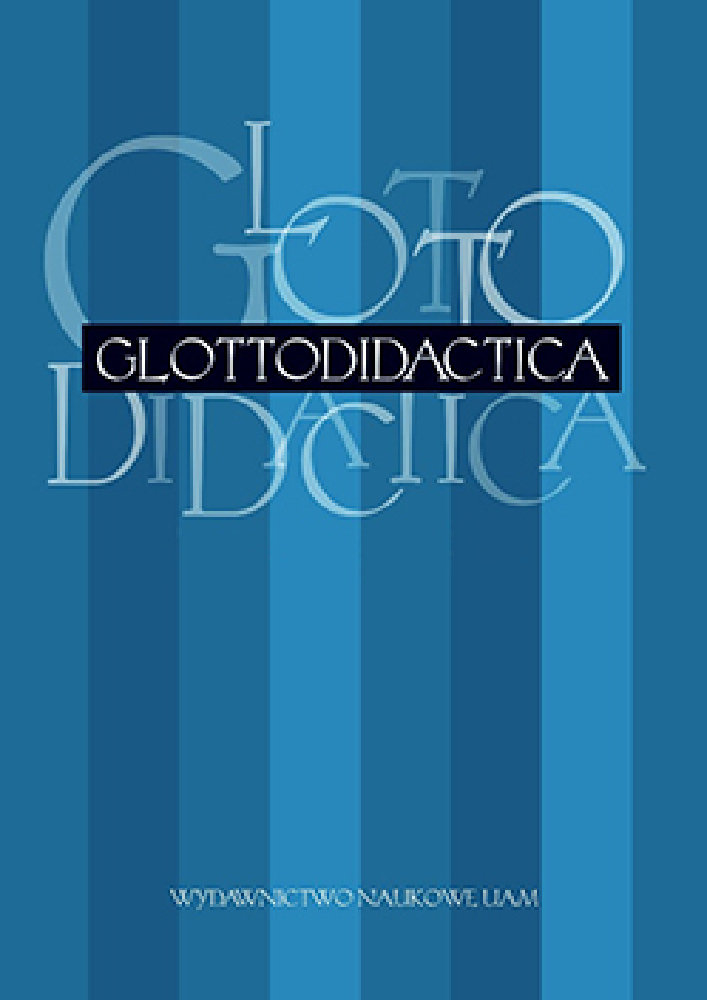Abstract
In the article a new attempt has been made to define what is the unit of translation and how to distinguish it. In her considerations the author bases on the achievements of cognitive linguistics, claiming that the translator doesn’t translate words, phrases or texts but the content units which realises in the concepts of language. Thus, it becomes possible to distinguish the concepts as translation units a priori before actual taking up the translation. The training in distinguishing the concepts of language and analysing them becomes therefore an important element of translation.Literaturhinweise
Catford, J.C.: A Linguistic Theory of Translation, London: Oxford Univ. Pr., 1965.
Dzierżanowska, H.: Przekład tekstów nieliterackich. Na przykładzie języka angielskiego, Warszawa 1988.
Gallagher, J.D.: Möglichkeiten und Grenzen der Übersetzungsäquivalenz. In: Bömer, W.; Vogel, K. (Hrsg.): Kontrast und Äquivalenz, Tübingen 1998.
Kade, O.: Zufall und Gesetzmäßigkeit in der Übersetzung, Leipzig 1968.
Koller, W.: Einführung in die Übersetzungswissenschaft, 1992.
Kußmaul, P.: Semantik. In: Snell-Homby/Hönig/Kußmaul/Schmitt (Hrsg.): Handbuch Translation, Tübingen 1999.
Markstein, E.: Erzählprosa. In: Snell-Homby/Hönig/Kußmaul/Schmitt (Hrsg.): Handbuch Translation, Tübingen 1999.
Paepcke, F. : Im Übersetzen leben. Übersetzen und Textvergleich, Tübingen 1986.
Schreiber, M.: Übersetzung und Bearbeitung. Zur Differenzierung und Abgrenzung des Übersetzungsbegriffs, Tübingen 1993.
Tabakowska. E.: Gramatyka i obrazowanie. Wprowadzenie do językoznawstwa kognitywnego. PAN, Kraków 1995.
Winter, W.: Impossibilities of Translation. In: Arrowsmith, W., Shattuck, R. (Hrsg.): The Craft and Context of Translation. A Symposium, Austin/Texas 1961.
Lizenz
Authors
Authors of texts accepted for publication in Glottodidactica are required to complete, sign and return to the editor's office the Agreement for granting a royalty-free license to works with a commitment to grant a CC sub-license.
Under the agreement, the authors of texts published in Glottodidactica grant the Adam Mickiewicz University in Poznań a non-exclusive, royalty-free license and authorize the use of Attribution-NoDerivatives 4.0 International (CC BY-ND 4.0) Creative Commons sub-license.
The authors retain the right to continue the free disposal of the work.
Users
Interested Internet users are entitled to use works published in Glottodidactica since 2016, under the following conditions:
- attribution - obligation to provide, together with the distributed work, information about the authorship, title, source (link to the original work, DOI) and the license itself.
- no derivatives - the work must be preserved in its original form, without the author's consent it is not possible to distribute the modified work, such as translations, publications, etc.
Copyrights are reserved for all texts published before 2016.
Miscellaneous
Adam Mickiewicz University in Poznań retains the right to magazines as a whole (layout, graphic form, title, cover design, logo etc.).




